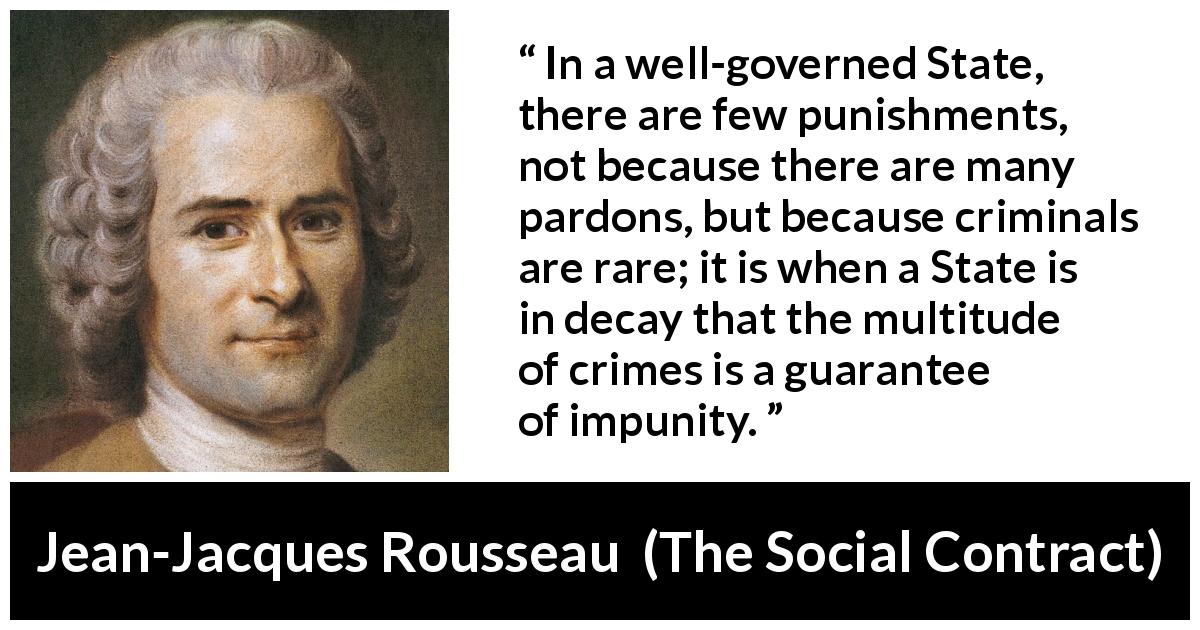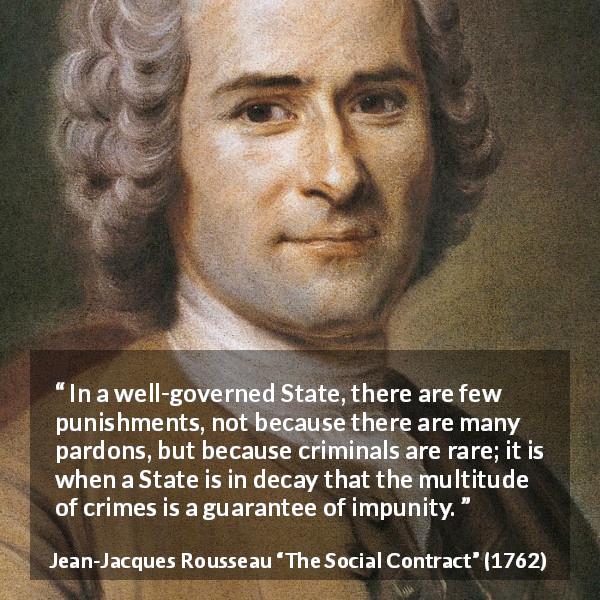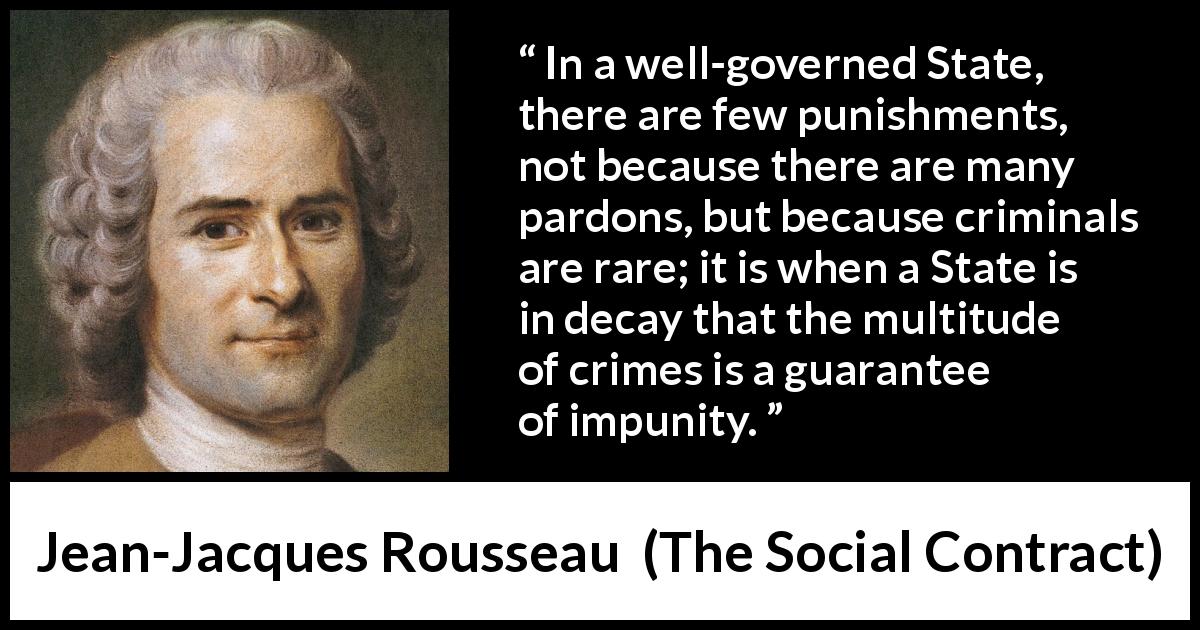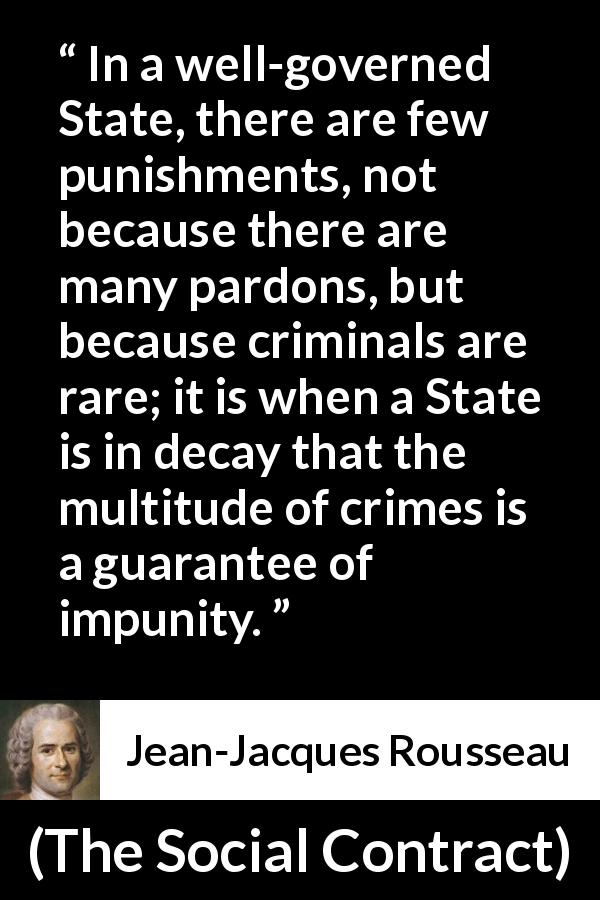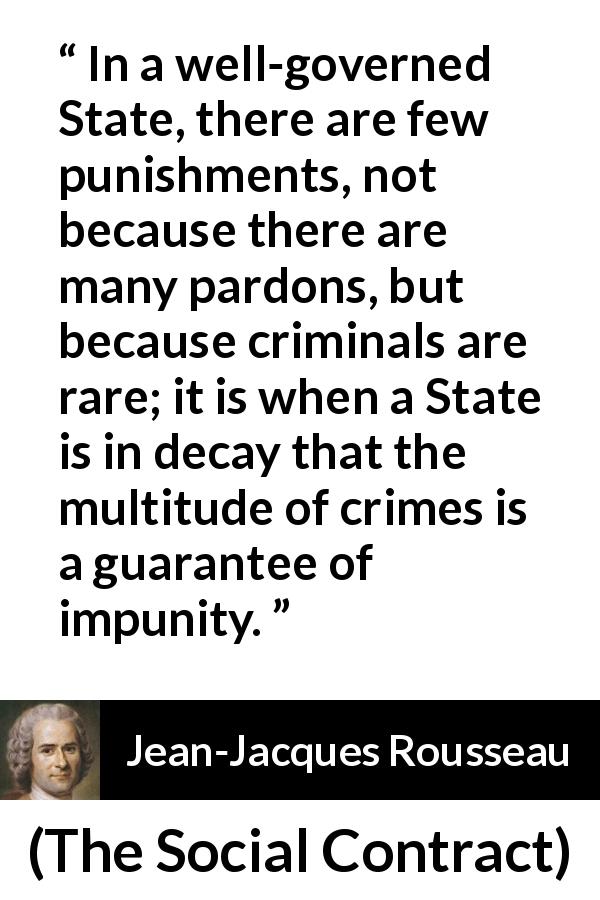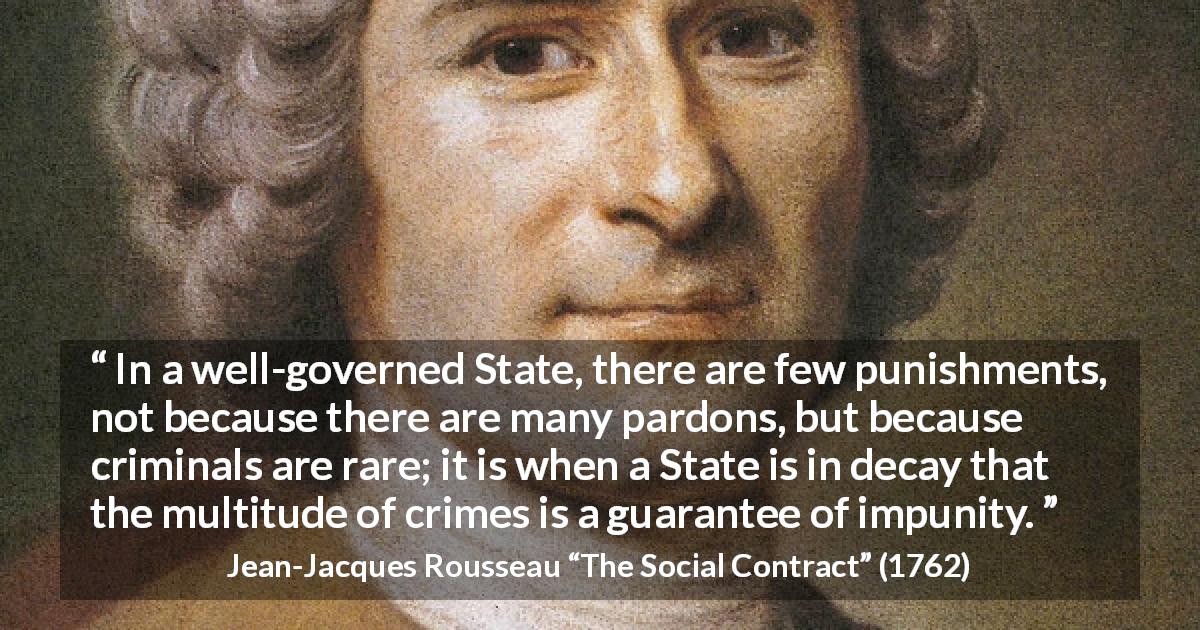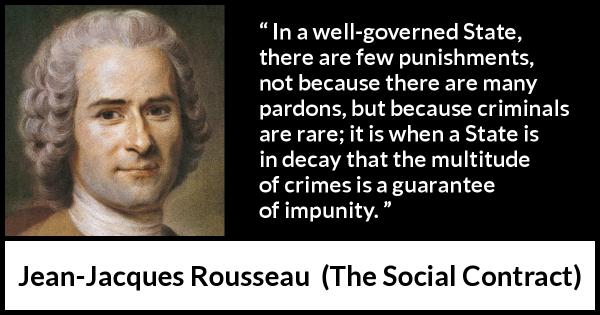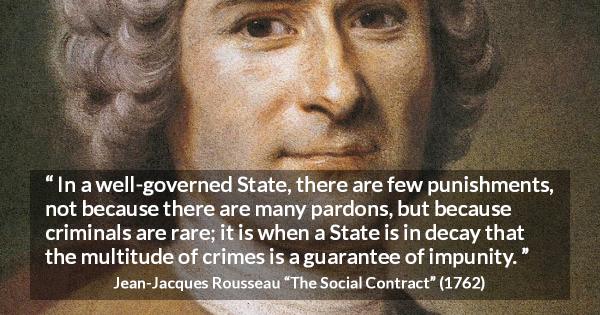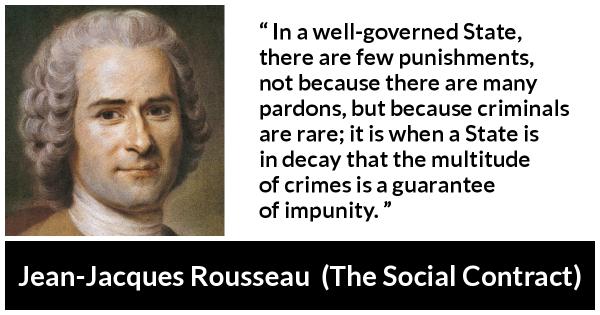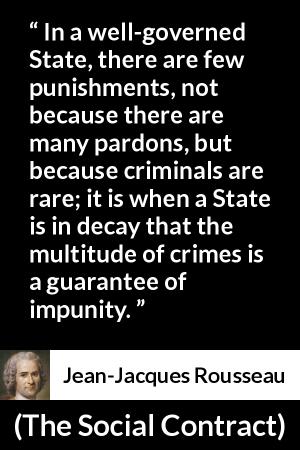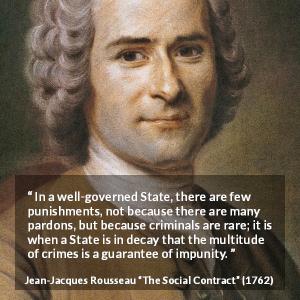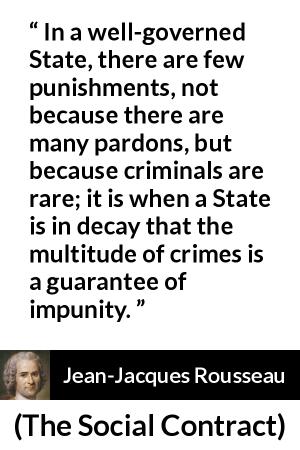“ In a well-governed State, there are few punishments, not because there are many pardons, but because criminals are rare; it is when a State is in decay that the multitude of crimes is a guarantee of impunity. ”
Jean-Jacques Rousseau, The Social Contract (1762). copy citation
| Author | Jean-Jacques Rousseau |
|---|---|
| Source | The Social Contract |
| Topic | punishment crime impunity |
| Date | 1762 |
| Language | English |
| Reference | Of the Social Contract, or Principles of Political Law, Book II |
| Note | Translated by George Douglas Howard Cole |
| Weblink | https://en.wikisource.org/wiki/The_Social_Contract/Book_II |
Context
“The right of pardoning or exempting the guilty from a penalty imposed by the law and pronounced by the judge belongs only to the authority which is superior to both judge and law, i.e., the Sovereign; each its right in this matter is far from clear, and the cases for exercising it are extremely rare. In a well-governed State, there are few punishments, not because there are many pardons, but because criminals are rare; it is when a State is in decay that the multitude of crimes is a guarantee of impunity. Under the Roman Republic, neither the Senate nor the Consuls ever attempted to pardon; even the people never did so, though it sometimes revoked its own decision. Frequent pardons mean that crime will soon need them no longer, and no one can help seeing whither that leads.”
source
